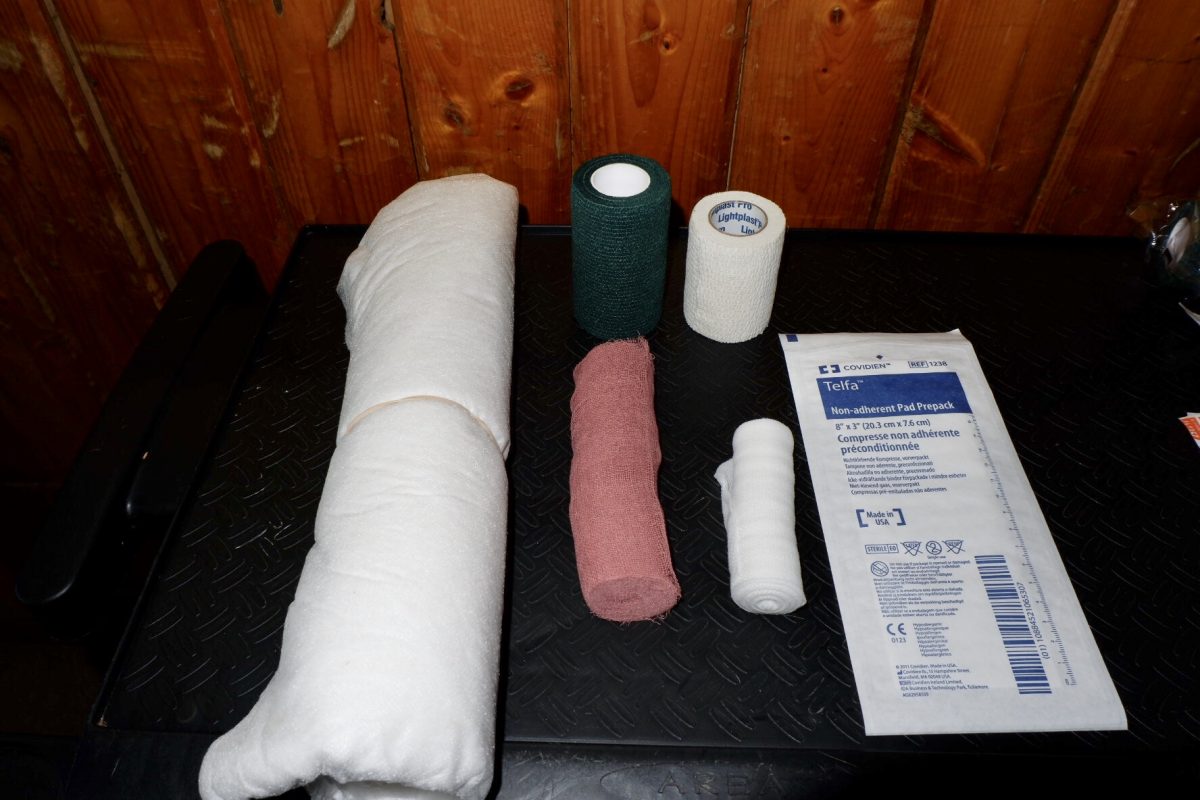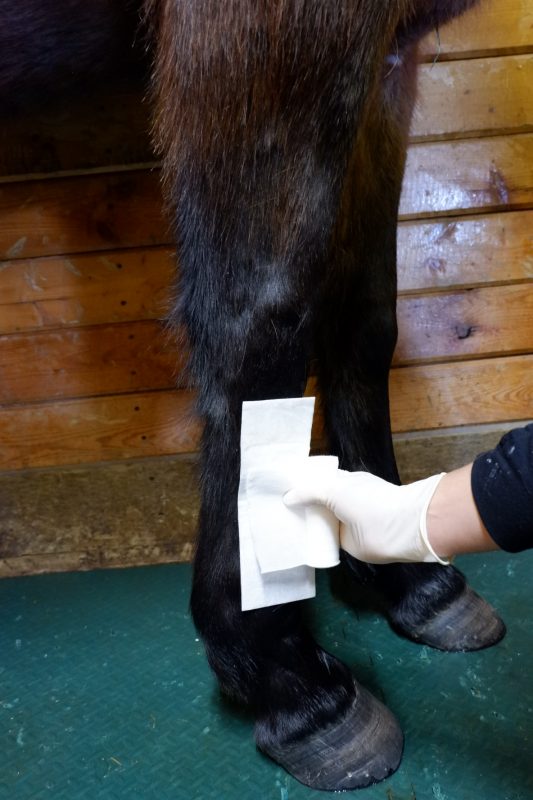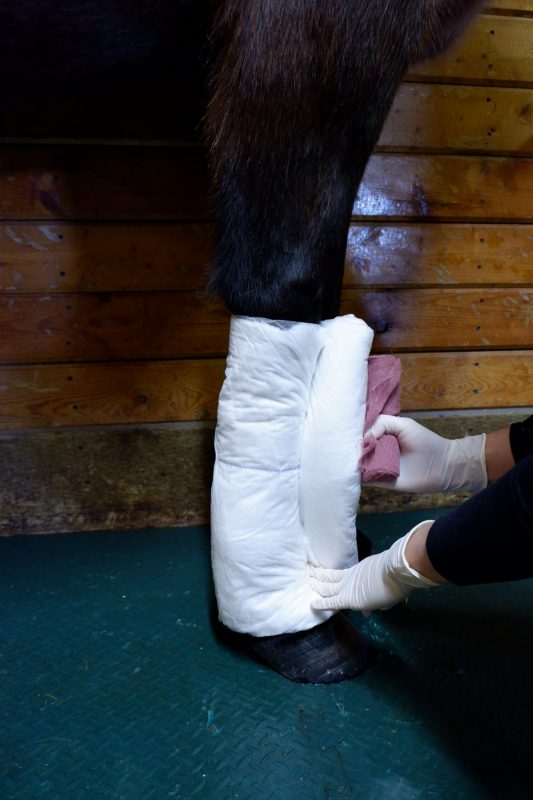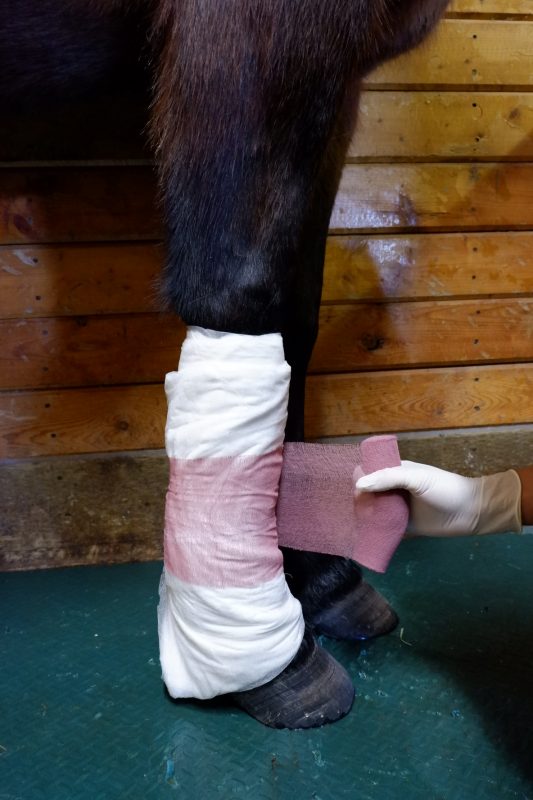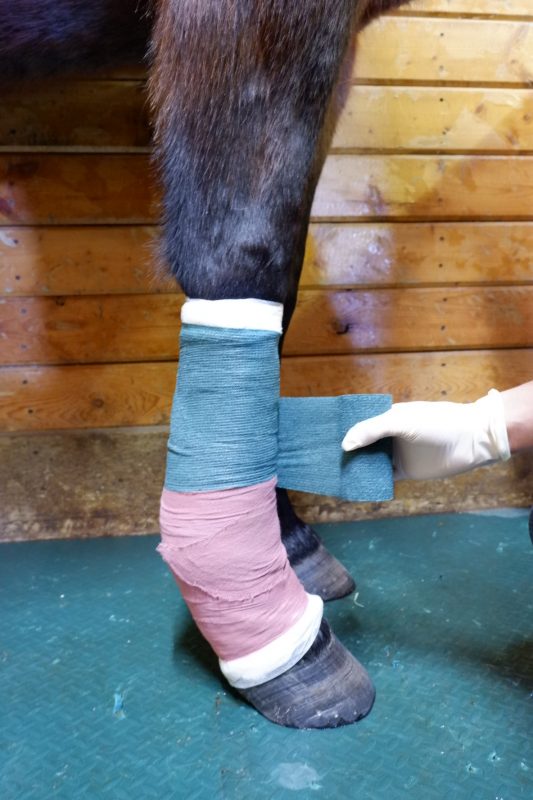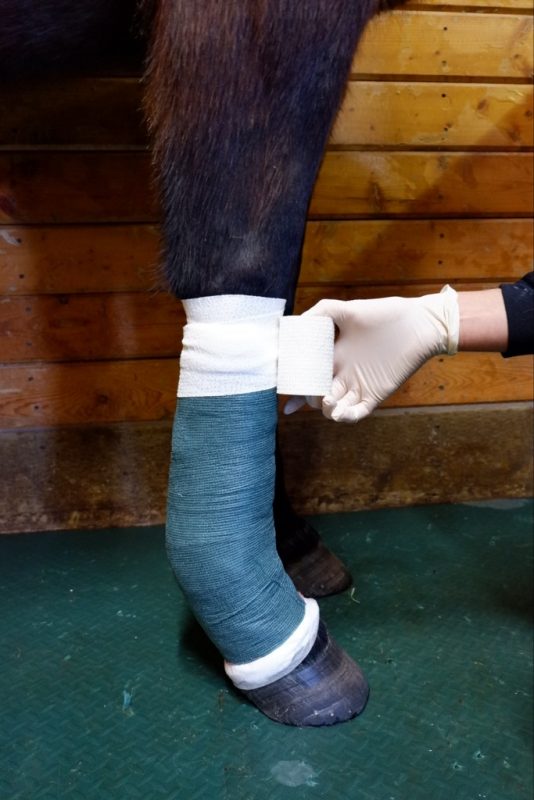Fetlock Bandage Wrap
Supplies
- Sterile gauze pad
- Gauze wrap
- Brown gauze
- Sterile cotton 16inch x 3 ft
- Elastikon
- lightplast
- Duct tape
Examine Operative Site
- Wash hands or wear exam gloves before applying the bandage
- “Wet Ones” can be used to clean hands in the stable.
- You may use isopropyl alcohol to clean around incision with sterile 4×4 gauze sponges if the area becomes soiled otherwise no cleaning is necessary, please do not apply any ointments
- The sutures are to be removed 14 days from the time surgery
Gauze
- Apply sterile pad to the site.
- Wrap gauze around the pad
Sterile cotton
- Roll the sterile cotton onto the limb.
- The more snugly you conform the cotton to the leg, the easier it will be to compress the bandage.
Brown Gauze
- Roll brown gauze from the bottom of the bandage.
- This will help to prevent it from slipping down.
- Roll firmly. Leave the cotton exposed at the top and bottom
- This is used to secure the bandage to the leg
Elastikon
- Do not wrap tightly on the skin as you may bow the horse’s tendon.
- Compress snugly over bandage, overlap the wrap 50% (to the red line of the previous layer).
Lightplast
- Apply the Elastikon to the skin above the bandage and to the hoof wall below the bandage.
- If the bottom of the bandage becomes soiled apply duct tape to the bottom of the foot and bandage.
Duct Tape (If needed)
- Duct tape applied to the bottom of the foot and bandage to prevent soiling of the surgical site.
Bandage Removal
- Do not change the bandage in the stall.
- find a clean, quiet area to work
- Use a razor blade to cut the bandage material.
- Slip finger between the Elastikon and skin to protect skin from the razor blade
